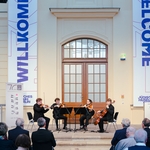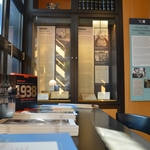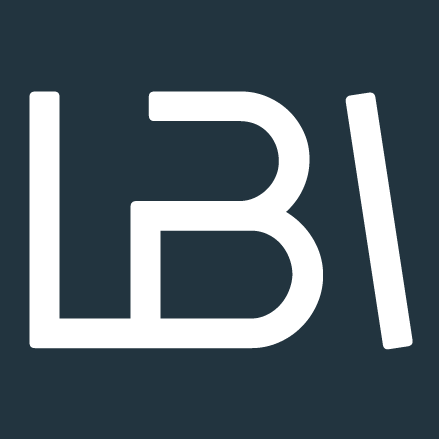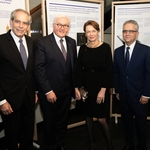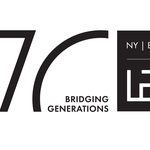Promoting the Braunschweig Region as Cradle of Modern Jewish Studies
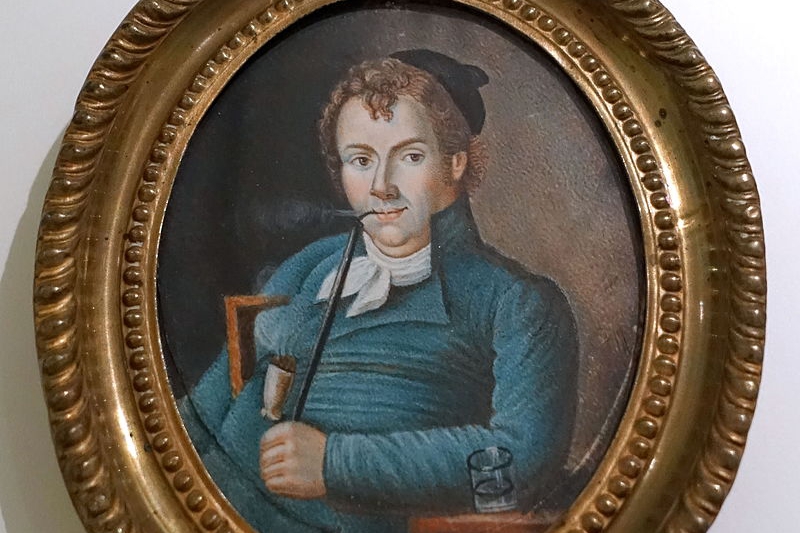
- Date
- Mon, Nov 21, 2016
In the small town of Seesen on the northwestern edge of the Harz Mountains in Lower Saxony, the banker Israel Jacobson (1768–1828) founded a school that became the first in Germany to educate both Jewish and Christian pupils. It was one of the first educational institutions to emerge from the Haskalah, or Jewish Enlightenment, and Israel Jacobson became a leader in the Jewish Reform movement.
Of course, Jacobson was not alone in trying to advance the modernization of Jewish education. The surrounding region, which includes Braunschweig, Lower Saxony’s second largest city, was home to numerous reformers and enlightenment thinkers who advocated the establishment of new educational institutions that would strengthen Jewish identity. Eventually, their influence would spread far beyond the borders of the Duchy.
Some of the students at Jacobson’s school in Seesen would become the leading figures in the Wissenschaft des Judentums, in which pioneering scholars applied modern methods of scholarship to Jewish history, texts, and culture, thus laying the groundwork for modern academic Jewish studies.
Leading figures of the Wissenschaft also emerged from the Samson-School in nearby Wolfenbüttel, foremost among them Leopold Zunz (1794–1886), the reformer and scholar who was among the founders of the Verein für die Cultur und Wissenschaft der Juden in 1819. Jewish men and women throughout the region worked to secure equal rights for Jews and paved the way for their assimilation into German bourgeois society.
The Israel Jacobson Network was founded to promote public awareness of the unique achievements of these remarkable citizens of the region. Representatives of thirty academic, cultural, business, and political institutions founded the network in April 2016 and made it their goal to promote interest in Jewish history and culture through the creative use of historic sites. In addition to the Network’s home base at the Technical University of Braunschweig, the Network’s members work at museums, libraries, research institutions, and memorials.
International cooperation was a founding principle for the group, which recognized the importance of including the perspective of the German-Jewish diaspora early on. With its strong collections related to the region, the LBI is a natural partner for the network and has committed to support the initiative with advice and programming.
The network hosted its first public event on April 14, 2016 at the Landesmuseum in Braunschweig, where LBI Research Director Frank Mecklenburg gave a presentation on cookbooks in LBI collections. Under the title, “Birnen, Bohnen, und Kein Speck” (a reference to the regional specialty involving pears, green beans, and bacon, with the omission of bacon in its Jewish variation), Mecklenburg discussed cookbooks as elements of material culture that reflect the complex interplay between food, religious traditions, notions of home, and the feeling of community.
In November 2016, the Landesmuseum Braunschweig will also host the exhibition “From Mendelssohn to Einstein, from Wolfenbüttel to New York (and back)—Jewish Paths to Modernity.” It is based on the LBI’s 2015 exhibition on the Wissenschaft des Judentums movement and its far-reaching impact. On display will be unique items from the LBI archives, including original handwritten materials by Moses Mendelssohn, Heinrich Heine, Leopold Zunz, and Albert Einstein, many of which are returning to their country of origin for the first time. The curators Cord-Friedrich Berghahn, Katrin Keßler, Alexander von Kienlin, Ulrich Knufinke und Heike Pöppelmann are adapting the exhibition for Germany.
Ismar Schorsch, President Emeritus of the LBI and Chancellor Emeritus of the Jewish Theological Seminary in New York, will speak at the opening of the exhibition on November 16, 2016. For Schorsch, the invitation to open the event is timely; the scholar of Jewish history and leader at institutions with direct links to the Wissenschaft recently published his latest book, a biography of Leopold Zunz. (Leopold Zunz: Creativity in Adversity. University of Pennsylvania Press, 2016).
